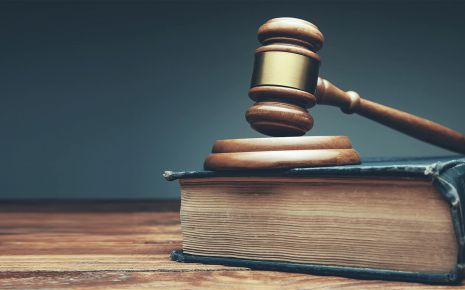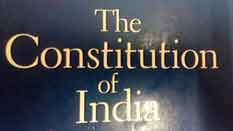Understanding White Collar Crimes
White-collar crimes, characterized by their sophistication and complexity,
form a unique category of illicit activities that stand in stark contrast to
traditional street crimes. Unlike offenses such as robbery or assault,
white-collar crimes are typically orchestrated by individuals or organizations
in positions of trust or authority, exploiting their access to resources,
information, and influence for personal gain. This analysis delves into the
intricate realm of white-collar crimes, examining their nature, prevalence,
impact, and the challenges they present to law enforcement and society at large.
Fraud: Encompassing various deceptive practices such as securities fraud, insurance fraud, mortgage fraud, and identity theft.
Embezzlement: The misappropriation of entrusted funds or assets, often by employees or executives within organizations.
Bribery and Corruption: Involving the offering, solicitation, or acceptance of bribes or kickbacks to influence the decisions or actions of public officials or business counterparts.
Insider Trading: Illegally trading securities based on material, non-public information unavailable to the general public.
Money Laundering: Concealing the origins of illegally acquired funds through intricate banking or commercial transactions.
Prevalence and Impact
White-collar crimes present significant economic, social, and ethical challenges, affecting individuals, businesses, and society on multiple levels. Despite their non-violent nature, these offenses often lead to substantial financial losses, erosion of institutional trust, and harm to victims' livelihoods and well-being.
Furthermore, white-collar crimes can have far-reaching consequences, undermining confidence in financial markets, distorting competition, and eroding democratic governance structures.
Accurately quantifying the prevalence of white-collar crimes is challenging due to factors like underreporting, detection complexities, and varying legal definitions across jurisdictions. Nonetheless, numerous studies and investigations shed light on the pervasive nature of these offenses, particularly within sectors such as banking and finance, healthcare, and corporate governance. Globalization and technological advancements have also expanded opportunities for white-collar criminals to exploit vulnerabilities and evade detection.
The transnational nature of many white-collar crimes presents another hurdle, transcending geographical boundaries and legal jurisdictions. Money laundering schemes, for instance, involve complex webs of international transactions spanning multiple countries, complicating efforts to trace and recover illicit proceeds. Similarly, cybercrimes like hacking or data breaches can originate from remote locations, exploiting gaps in regulatory frameworks and law enforcement capabilities.
Key strategies and solutions include:
Enhanced Regulation and Oversight: Strengthening regulatory frameworks and oversight mechanisms to detect and deter fraudulent activities, promote transparency, and hold accountable individuals and organizations engaged in misconduct.
Investigative Resources and Expertise: Equipping law enforcement agencies and regulatory authorities with the resources, training, and expertise required to investigate white-collar crimes effectively, including forensic accounting, data analysis, and cybercrime investigations.
International Cooperation: Facilitating collaboration and information sharing among national and international law enforcement agencies, financial institutions, and regulatory bodies to combat cross-border white-collar crimes and money laundering activities.
Whistleblower Protections: Establishing robust whistleblower protection mechanisms to encourage individuals with knowledge of wrongdoing to come forward and report illegal activities without fear of retaliation.
Corporate Accountability: Holding corporations and executives accountable for unethical or illegal conduct through enforcement actions, fines, and penalties, while fostering a culture of compliance, integrity, and ethical leadership within organizations.
Conclusion
White-collar crimes represent a complex and pervasive challenge with far-reaching implications for individuals, businesses, and society at large. As technology advances and global markets become increasingly interconnected, the risks posed by these offenses continue to evolve, necessitating proactive measures to prevent, detect, and prosecute perpetrators. By addressing the root causes of white-collar crimes, promoting transparency and accountability, and fostering a culture of ethical conduct, we can strive towards a safer, more just, and equitable society for all.
Understanding White-Collar Crimes
Coined by sociologist Edwin Sutherland in 1939, "white-collar crime" initially referred to offenses committed by individuals of high social status and respectability within their professions. Over time, the definition has broadened to encompass a wide range of non-violent crimes characterized by deception, concealment, and breaches of trust for financial or personal benefit. Common examples include:Fraud: Encompassing various deceptive practices such as securities fraud, insurance fraud, mortgage fraud, and identity theft.
Embezzlement: The misappropriation of entrusted funds or assets, often by employees or executives within organizations.
Bribery and Corruption: Involving the offering, solicitation, or acceptance of bribes or kickbacks to influence the decisions or actions of public officials or business counterparts.
Insider Trading: Illegally trading securities based on material, non-public information unavailable to the general public.
Money Laundering: Concealing the origins of illegally acquired funds through intricate banking or commercial transactions.
Prevalence and Impact
White-collar crimes present significant economic, social, and ethical challenges, affecting individuals, businesses, and society on multiple levels. Despite their non-violent nature, these offenses often lead to substantial financial losses, erosion of institutional trust, and harm to victims' livelihoods and well-being.
Furthermore, white-collar crimes can have far-reaching consequences, undermining confidence in financial markets, distorting competition, and eroding democratic governance structures.
Accurately quantifying the prevalence of white-collar crimes is challenging due to factors like underreporting, detection complexities, and varying legal definitions across jurisdictions. Nonetheless, numerous studies and investigations shed light on the pervasive nature of these offenses, particularly within sectors such as banking and finance, healthcare, and corporate governance. Globalization and technological advancements have also expanded opportunities for white-collar criminals to exploit vulnerabilities and evade detection.
Challenges in Detection and Prosecution
Detecting and prosecuting white-collar crimes pose formidable challenges for law enforcement agencies and regulatory bodies. Unlike street crimes, which may leave physical evidence or eyewitness accounts, white-collar crimes are often intricate, requiring specialized expertise to uncover. Additionally, perpetrators frequently hold positions of power, making investigations politically sensitive and susceptible to obstruction or interference.The transnational nature of many white-collar crimes presents another hurdle, transcending geographical boundaries and legal jurisdictions. Money laundering schemes, for instance, involve complex webs of international transactions spanning multiple countries, complicating efforts to trace and recover illicit proceeds. Similarly, cybercrimes like hacking or data breaches can originate from remote locations, exploiting gaps in regulatory frameworks and law enforcement capabilities.
Addressing White-Collar Crimes: Strategies and Solutions
Effectively combating white-collar crimes necessitates a multifaceted approach, integrating legal, regulatory, investigative, and preventive measures.Key strategies and solutions include:
Enhanced Regulation and Oversight: Strengthening regulatory frameworks and oversight mechanisms to detect and deter fraudulent activities, promote transparency, and hold accountable individuals and organizations engaged in misconduct.
Investigative Resources and Expertise: Equipping law enforcement agencies and regulatory authorities with the resources, training, and expertise required to investigate white-collar crimes effectively, including forensic accounting, data analysis, and cybercrime investigations.
International Cooperation: Facilitating collaboration and information sharing among national and international law enforcement agencies, financial institutions, and regulatory bodies to combat cross-border white-collar crimes and money laundering activities.
Whistleblower Protections: Establishing robust whistleblower protection mechanisms to encourage individuals with knowledge of wrongdoing to come forward and report illegal activities without fear of retaliation.
Corporate Accountability: Holding corporations and executives accountable for unethical or illegal conduct through enforcement actions, fines, and penalties, while fostering a culture of compliance, integrity, and ethical leadership within organizations.
Conclusion
White-collar crimes represent a complex and pervasive challenge with far-reaching implications for individuals, businesses, and society at large. As technology advances and global markets become increasingly interconnected, the risks posed by these offenses continue to evolve, necessitating proactive measures to prevent, detect, and prosecute perpetrators. By addressing the root causes of white-collar crimes, promoting transparency and accountability, and fostering a culture of ethical conduct, we can strive towards a safer, more just, and equitable society for all.
Law Article in India
Legal Question & Answers
Lawyers in India - Search By City
LawArticles
How To File For Mutual Divorce In Delhi

How To File For Mutual Divorce In Delhi Mutual Consent Divorce is the Simplest Way to Obtain a D...
Increased Age For Girls Marriage

It is hoped that the Prohibition of Child Marriage (Amendment) Bill, 2021, which intends to inc...
Facade of Social Media

One may very easily get absorbed in the lives of others as one scrolls through a Facebook news ...
Section 482 CrPc - Quashing Of FIR: Guid...

The Inherent power under Section 482 in The Code Of Criminal Procedure, 1973 (37th Chapter of t...
The Uniform Civil Code (UCC) in India: A...

The Uniform Civil Code (UCC) is a concept that proposes the unification of personal laws across...
Role Of Artificial Intelligence In Legal...

Artificial intelligence (AI) is revolutionizing various sectors of the economy, and the legal i...








Please Drop Your Comments